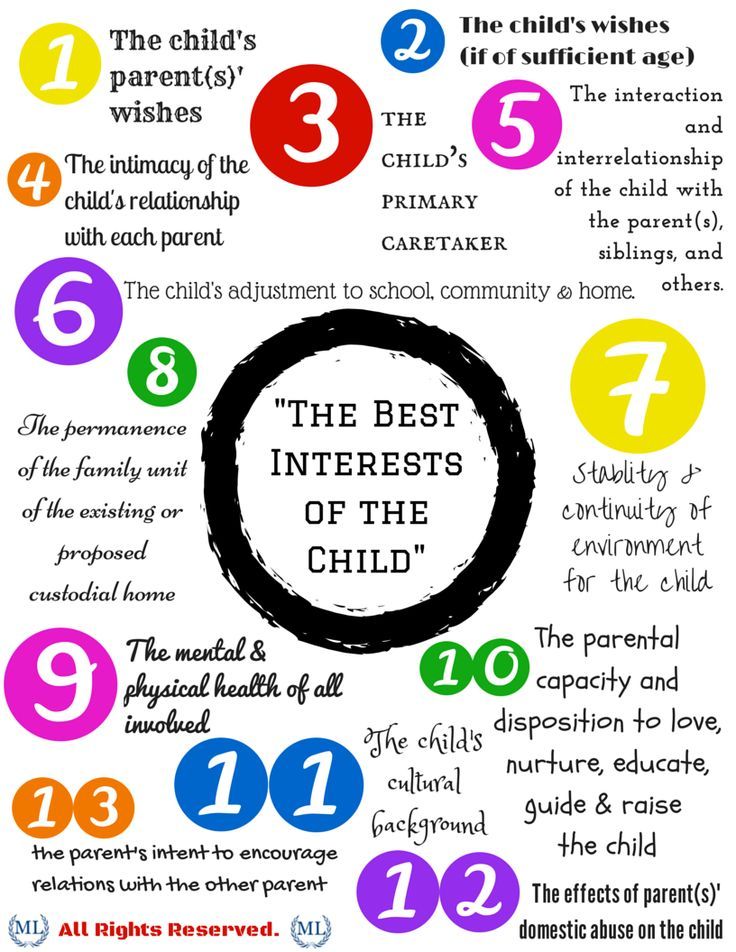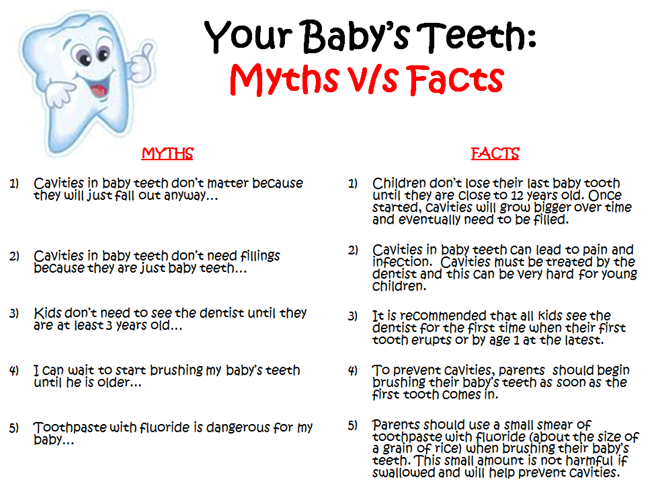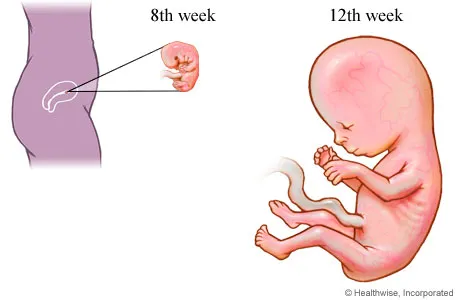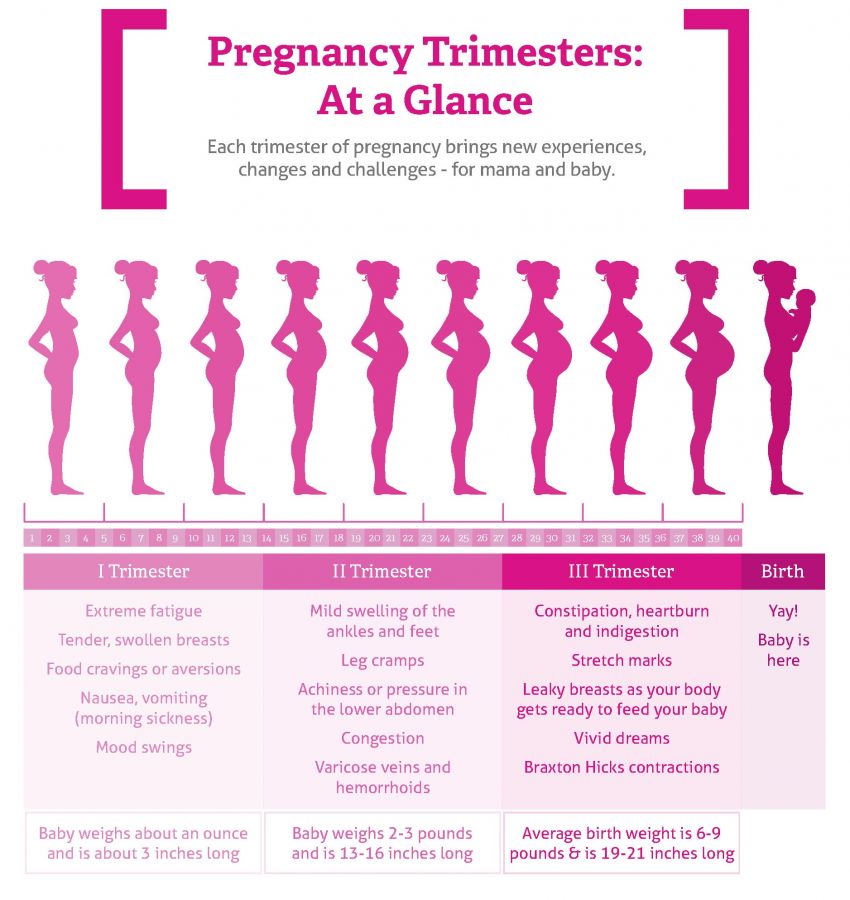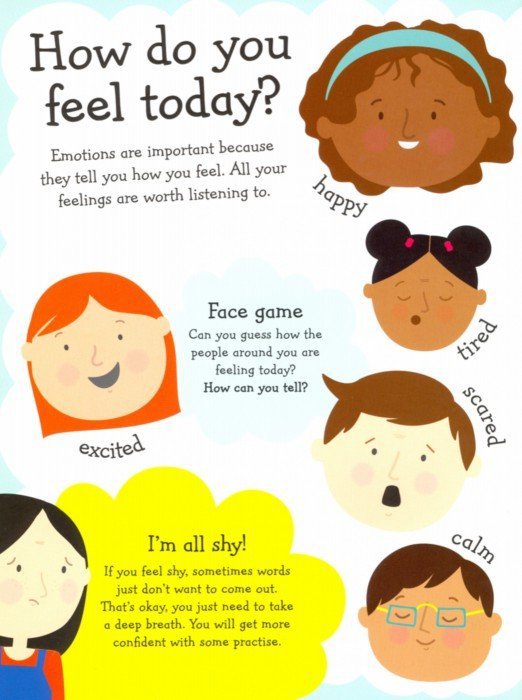How to win full custody of a child
6 Tips to Win a Child Custody Battle
A child custody battle can be one of the most stressful, yet important things you will ever engage in. After all, it’s your child’s well-being on the line.
Child custody disputes are rarely easy. There’s no magical formula for how to win a child custody case, but there are ways to improve your odds.
Read on for the top 6 tips to win a child custody battle.
1. Focus on the Best Interest of Your Child
This should go without saying, but sadly, a lot of parents lose sight of the most important thing: your child’s best interest.
Here’s why: Parent’s often get wrapped up in trying to “win”. Don’t shift away from what’s best for your child because you’re trying to beat your ex.
A heated custody battle takes a toll on everyone. Even babies are aware of and affected by the increased stress that goes hand in hand with separation and custody cases. Children feel anxiety just as adults do, and it can adversely affect their mood, sleep patterns, and other behaviors.
Older kids may be concerned about the unknowns – the possibilities of having to move, change schools, make all new friends. It’s common for them to worry that they’re somehow to blame, or that you or their other parent won’t love them anymore.
Keep in mind that this is an emotionally challenging time for everyone and it’s important to stay focused on your children and what’s best for them. Now’s the time to give them a little extra reassurance and emotional support.
As you start sorting through the details of your child custody agreement remember that children benefit greatly from having both parents play an active role in their life. It’s important to work out a fair parenting time schedule that gives your kids quality time with both of you.
The exception to the rule is when one of the parents is unfit to care for the child because they pose a risk of physical or emotional harm. If that’s the case it’s critical you consult with an attorney right away to help protect your child.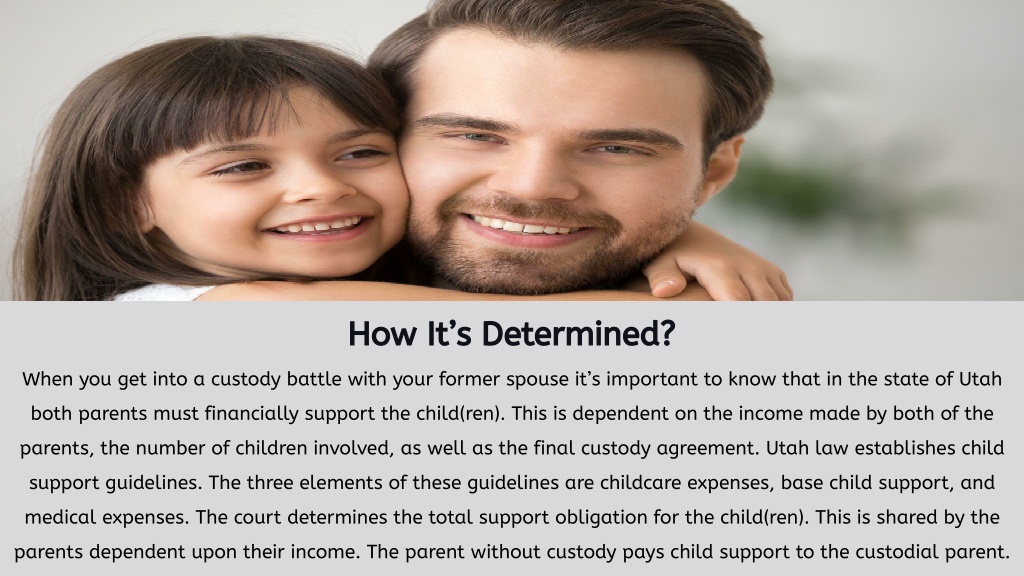
2. Hire an Experienced Family Law Attorney
When you’re facing something as serious as a custody battle, it’s crucial that you get in touch with an attorney quickly.
They know the law, have tried many cases just like yours, and can play both protector and peacemaker while working for the best-case outcome. Having an attorney guide you from the start can help you from making costly mistakes.
Some parents start the process based on false beliefs or with unrealistic expectations. For example, being awarded 100% full custody is highly unlikely.
Don’t assume just because you’re a woman that the court will favor you and you’ll have an easier time getting the custody agreement you want. That’s not the case.
Likewise, if you’re a father, don’t assume you don’t stand a chance because the courts favor mothers. Despite what you may have heard, that’s not how it works.
When courts make decisions about child custody and visitation agreements they want to ensure both parents are a part of their children’s lives.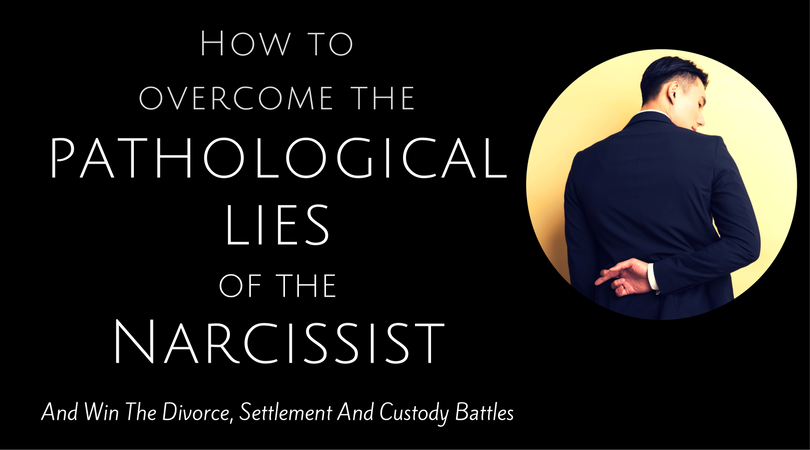
Your attorney will let you know what to realistically expect and how to create an equitable parenting agreement and visitation schedule that’s fair to everyone.
If you do have any concerns about the well-being of your children, hiring an attorney is extremely important. They will advocate for what’s best for your child, making their safety a priority.
3. Work Together to Keep Things From Getting Ugly
One of the biggest problems with child custody cases is that they can quickly become ugly. Parents often use this as an opportunity to take out frustrations regarding their relationship with each other rather than keeping the focus on their kids.
If you want to protect your interests and those of your child, you need to do your best to make peace and be civil. Try to separate from your personal feelings regarding your ex and keep any unresolved issues between the two of you out of your custody case. Focus only on issues that will have a direct impact on your child.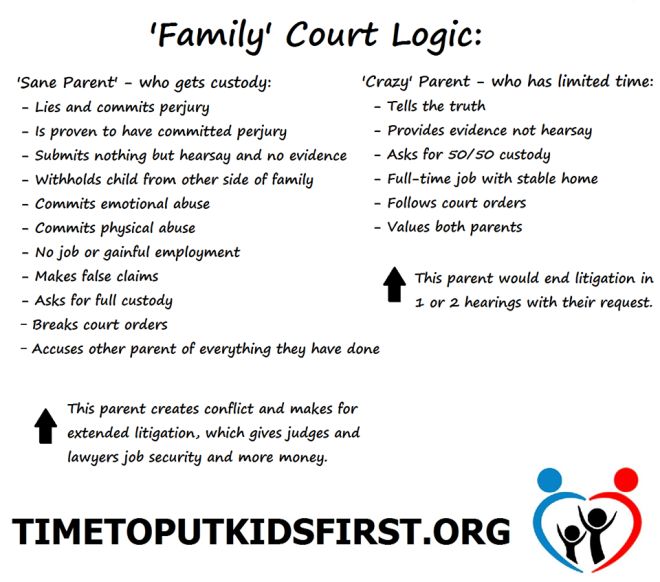
Regardless of where the two of you stand, it is always better to have an out-of-court settlement. You have more control over getting the best outcome for your child when your co-parenting relationship is collaborative, rather than combative.
If you’re unable to reach an agreement together, meditation services are available to help work through the details before going to court becomes necessary. Your attorney can help make these arrangements.
4. Address Issues That Could Work Against You
If you’re facing a child custody battle, you can expect every aspect of your life to be put under a microscope. Because of this, you need to understand what aspects of your life may not play to your advantage in court.
An attorney can help evaluate your personal circumstances and offer advice to give you the best chances of a favorable outcome. If any potential issues are uncovered, your attorney will advise you on what you can do to minimize the impact those things could have on your custody case.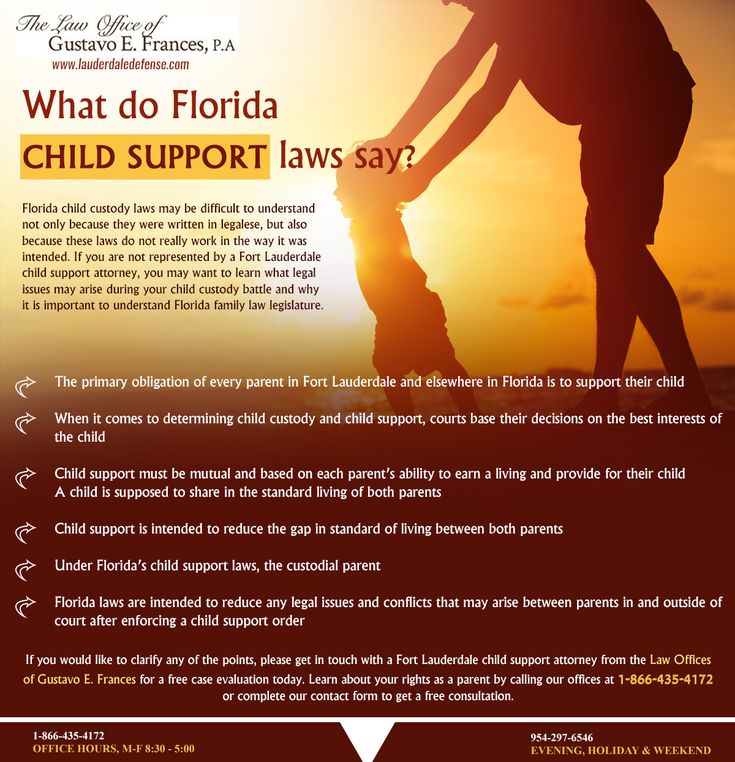
Also, keep in mind that perception is everything. Keep your communication with the other parent positive, and don’t say anything to them that you wouldn’t want a judge to see.
5. Exercise Caution With Your Social Media Use
In today’s day and age, it’s easy to jump on social media to complain about your ex. It might feel good to publicly vent and receive support, however, it’s not a good idea! If you publicly bash the other parent it could potentially be used against you as evidence of parental alienation.
Your activity on social media can be used as evidence in a variety of other ways too, and is sure to be closely scrutinized. What you say online can negatively impact the outcome of a custody battle so it’s important to exercise caution.
Social media posts can be used to assess your character and play a role in determining the outcome of your custody case. What you post can also be used as evidence of your state-of-mind, location history, spending habits or income, and as documentation of activities and people you’ve engaged with.
Anything that depicts you in a less-than-favorable light or exercising poor judgment could easily hurt your case. It’s advisable to err on the side of caution and refrain from using social media while you’re in the midst of a custody case.
If you have any questions or concerns regarding your online activities and how they might impact your child custody case you should consult with an attorney.
Another point to keep in mind regarding social media is that the same rules apply to your ex. If there is anything posted on social media or through private messages that you think might help your case you need to consult with your attorney right away. In order for social media activity to be presented as evidence, certain steps must be taken to ensure everything is properly documented and admissible.
6. Stay Positively Engaged in Your Child’s Life
The best thing you can do for the long-run is to exercise your rights and honor your responsibilities as a parent. Even before a formal agreement is made, take every opportunity to be a strong presence in your child’s life, and stay away from mistakes that could make you lose your parental rights.
Even before a formal agreement is made, take every opportunity to be a strong presence in your child’s life, and stay away from mistakes that could make you lose your parental rights.
This is an ongoing issue since you might need to modify your child custody agreement in the future, so it’s important to keep the previously mentioned tips in mind as you move forward.
So, How Do You Win a Child Custody Case?
Understanding how to win a child custody case means realizing that there may not be a clear “winner.”
The only true way to consider the outcome of a custody case a win is when decisions are made based upon the best interest of the children involved.
Fight For Your Child’s Best Interest and Call for a Consultation Today!
Don’t leave your children’s future up to chance or in the wrong hands.
With locations in Angleton, Webster/Clear Lake, and Pearland, the experienced family law team at Scott M Brown and Associates is here to help.
Call today to book a 1-1 consultation with a highly qualified attorney.
Post Views: 6,488
This author is an approved attorney by Attorney at Law Magazine.
Attorney's Website (832) 240-7470Scott Brown
Scott M. Brown is an experienced and passionate trial attorney who produces results. He is Board Certified in Family Law by the Texas Board of Legal Specialization (less than 1% of all attorneys in the state of Texas are Board Certified in Family Law). Scott was named to the 2016 Texas Super Lawyers (only 5% of the attorneys in the State of Texas are named to this prestigious list). He was also recognized as a Texas Super Lawyers Rising Star in 2012-2014 (only 2.5 percent of attorneys under the age of 40 in the state of Texas are named to this list). In 2015 and 2016, Scott was named as one of Houston’s Top Lawyers in H-Town magazine. He also possesses a 10.00 Avvo rating, which is the highest possible rating awarded by one of the nation’s premier legal ranking services. Scott’s focus on family law issues includes the toughest of divorces, modifications, complex child custody cases, enforcement actions, high net value divorce (including multimillion-dollar estates). Scott is a powerhouse and is devoted to his firm’s vision of giving his client’s the best possible legal representation. Scott is also a published author having contributed to the book Strategies for Family Law in Texas, 2013 ed.: Leading Lawyers on Handling Negotiations, Managing Client Expectations, and Navigating Recent Trends (Inside the Minds).
Scott’s focus on family law issues includes the toughest of divorces, modifications, complex child custody cases, enforcement actions, high net value divorce (including multimillion-dollar estates). Scott is a powerhouse and is devoted to his firm’s vision of giving his client’s the best possible legal representation. Scott is also a published author having contributed to the book Strategies for Family Law in Texas, 2013 ed.: Leading Lawyers on Handling Negotiations, Managing Client Expectations, and Navigating Recent Trends (Inside the Minds).
20 Tips to Win Your Child Custody Battle | Sacks and Sacks Law
How to Fight and Win a Custody Battle
The first and most important thing to do if you’re going through a child custody battle with your ex is knowing why you’re fighting for custody in the first place. There are a lot of people out there who want, or need, to win their child custody cases, but don’t know exactly what they’re fighting for. If this sounds like you, you might want to take a step back and consider why you’re fighting for custody in the first place.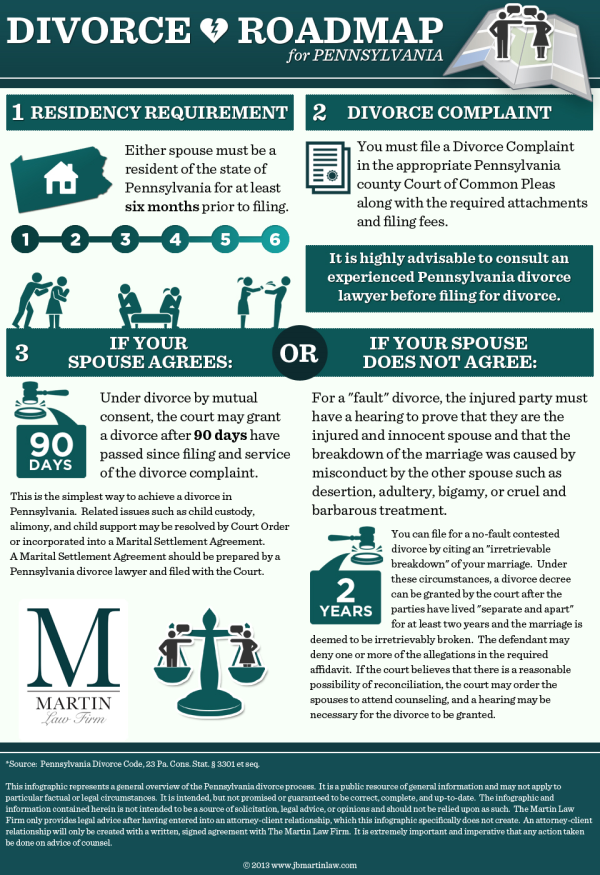 Everyone’s situation is different, so there are going to be multiple reasons why you would do this, but one of the main ones is probably that you legitimately care about your child’s well being and have their best interest at heart.
Everyone’s situation is different, so there are going to be multiple reasons why you would do this, but one of the main ones is probably that you legitimately care about your child’s well being and have their best interest at heart.
As nice as this may sound, it usually doesn’t come through in some kind of child custody battle. The reason for this is that you’re going to be so wrapped up in the legal aspect of things that you might forget why you started fighting in the first place. This is not something you want to happen if you’re serious about winning your child custody battle.
Next, you need to be realistic in your expectations. In child custody cases, the paramount issue is almost always what’s going to happen with the children: where are they going to live? When will they see their father or mother? This makes sense because that’s what people want to know, but it also means that a lot of times the parent or parents who are fighting for custody will be at a disadvantage. This is because there’s an element of subjectivity surrounding these kinds of questions, and the situation, in general, is going to require you to make sacrifices that you might not want to make.
This is because there’s an element of subjectivity surrounding these kinds of questions, and the situation, in general, is going to require you to make sacrifices that you might not want to make.
The other thing you need to take into consideration when trying to win your child custody battle is what your ex is going to do. It doesn’t matter how reasonable and level-headed you are, if they decide to fight dirty then you’re almost guaranteed to lose your case. The reason for this is that the other parent has a lot of control over the situation; they can make things difficult by simply not showing up or being cross-examined, or they can even go as far as lying under oath if that’s what it takes for them to win.
This is why you have to be so careful and strategize all the possibilities before putting your plan into action. There are a lot of factors stacked against you when fighting for custody, but there should never be a situation where you lose hope.
There are a lot of things to be cautious about when fighting for custody, but there are also plenty of ways to get an upper hand. Here’s how:
Here’s how:
Use negative ammunition against your ex. What I mean by this is showing the court that your ex isn’t incredibly reasonable and rational; if the judge and/or opposing counsel thinks your ex is being unreasonable, then chances are they’ll rule in your favor.
Work with the court system to maintain jurisdiction over your child. A big mistake a lot of people make is thinking that one parent has more rights than the other, but this isn’t necessarily true. If you’re a reasonable parent who’s willing to work with the court system and do whatever is in the child’s best interest then you should be able to get things done.
There are a lot of things that can go wrong if you’re going through a custody battle, but there are plenty of ways to use this as an opportunity to teach your kids valuable life lessons. This, in turn, will teach them to treat their children with kindness and respect even when they’re going through a bad period.
What To Do to Win Your Child Custody Battle
Here are some tips on winning your child custody battle.

Tip #1: Show a willingness to work together with your EX
Remember that you’re going to be on this team with your child’s other parent and the court system wants you to work together and not apart.
Tip #2: Don’t shrug off or be late to visitation
If you want to show a good faith effort to the court and make sure your child’s other parent isn’t always complaining about something you usually have control over. If you’re late, don’t show up, or don’t let your ex know where/when/for how long your taking the kids then there’s going to be an issue.
Tip #3: Don’t reschedule visits with you kids
If you reschedule visits often, it’s a sign of instability; a sign that you maybe fighting for custody for the wrong reasons like control, revenge, or monetary because you don’t want to pay child support.
Tip #4: Don’t put your children in the middle
If your fighting for custody, things aren’t going to be pretty but do not put your children in the middle, it doesn’t show stability.
Tip #5: Don’t let the other parent put their children in the middle
It can be really easy for a cross-examining attorney, or an angry or bitter ex to try to make you look bad in front of your kids. The judge is going to see right through this, but it’s easy to control the damage when your kids are being bickered back and forth; they’re hearing a lot more than what is actually being said.
Tip #6: Use negative ammunition against the other parent.
Something I like to do is to look at the negative things my ex has been convicted of, or done in the past. This might be drugs, theft, DUIs, etc. These are all useful pieces of information that could help your case and make your ex look terrible; especially if you have pictures or police reports.
Tip #7: Be respectful of the other parent.
This is something that has to be done even when things are at their worst. Don’t use dirty tactics, don’t talk poorly about your ex, and steer clear of anything that would look bad in court or make you look like a bitter person with no control over themselves.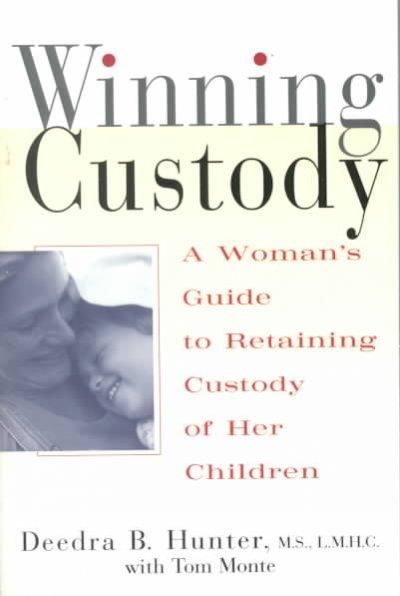
Tip #8: Stand up for yourself.
A lot of people say that you shouldn’t attack your ex because they’ll use it against you, but if you have a good case then let the judges know. The judge isn’t going to be afraid of your hard truth; do not back down and let them walk all over you.
Tip #9: Teach your children to respect others.
Many people think that they’re going to win the battle by making their ex look bad.
If you do this, you’re missing a great opportunity to teach your children good life lessons about treating other people with kindness and respect even when things aren’t going well.
Tip #10: Use social media sites and your blog to get public support.
This is a great way to show the courts that you have a lot of support and are working in the best interest for your children.
Tip #11: Don’t give up; keep fighting through the end If it’s going bad, don’t stop fighting.
Children need two parents, not one.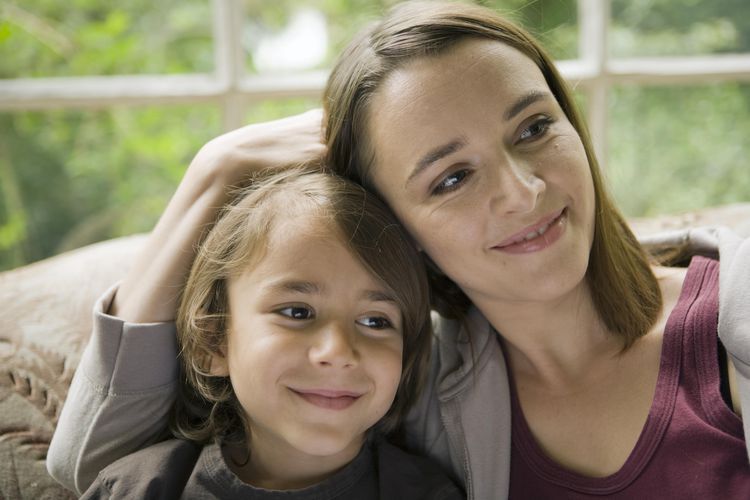 If you’re winning, don’t stop fighting at the end thinking the battle is over; it isn’t until a judge says so.
If you’re winning, don’t stop fighting at the end thinking the battle is over; it isn’t until a judge says so.
Tip #12: Have reasonable expectations & make sure they are realistic.
This means that if you want visits every weekend and holidays that you need to be realistic about how much time your child’s other parent can spend with their kids.
Tip #13: Don’t use dirty tactics.
Dirty tactics include using your children as weapons, threatening or hurting the other parent in any way, taking photos of or spying on the other parent etc. These will only hurt you and do nothing but give your ex ammunition to use against you.
Tip #14: Keep a diary of and document everything.
This includes things that your ex does or says against you. You may think it’s not important, but trust me you’re going to want this when your child’s other parent tries to make you look bad in front of the judge.
Tip #15: Don’t be afraid to get a lawyer.
If your going through a custody battle , I highly recommend you watch a few episodes of Judge Judy and get yourself a lawyer. Unless you have the money to go through court unrepresented, it’s going to be very difficult for you to win against an ex who has one on their side.
Tip #15: Try to resolve issues with the other parent without a third party.
If you need a mediator, try to keep it reasonable and fair but don’t accept unreasonable mediators or judges. Don’t lose your temper – Stay calm.
Tip #16: Understand this is a perception game.
It’s the way the court looks at you in the end that really matters, not the mistakes of the past but the present behavior is what matters most, on how you treated your kids, your spouse, and your responsibilities from the moment your child was born. If you were in trouble prior to a child coming into your life the court looks more at how you have been with the new responsibility. It isn’t a deal breaker unless it was something violent.
Tip #17: Be prepared for anything.
The person you’re fighting could have friends and family who are looking to help out, or even a secret partner you may not be expecting.
Tip #18: Have proper documentation and keep it organized.
This includes pictures, emails, phone calls and logs of everything you do with your children. Keep records of all the things the other parent does that isn’t average or reasonable for good child rearing.
Tip #19: Collect evidence of good parenting.
This is a great way to imply that the other parent was negligent in their duties.
Tip #20: Be prepared for lies.
Not only will the other parent try to make you look bad, but many people are offended by what is happening and end up making false allegations or twisting facts; be prepared!
The Myths of Child Custody:
Myth #1:The best parent is the one who most wants the child.
This isn’t always true, as there are times when it is better to have two parents that don’t want to be with each other, but rather than fight they work together for their children’s sake. It’s a lot more work and stress to go through court and if the child ends up with two “bad” parents, then it’s not such a great situation for the kids. Court cases are very stressful to children (even though they have no idea what’s going on) and too much stress can lead to many childhood issues like depression, anxiety or even delinquency later in life.
It’s a lot more work and stress to go through court and if the child ends up with two “bad” parents, then it’s not such a great situation for the kids. Court cases are very stressful to children (even though they have no idea what’s going on) and too much stress can lead to many childhood issues like depression, anxiety or even delinquency later in life.
Myth #2: The best parent is the one with custody.
Again, not always true. Some of the time it’s better to allow two parents that don’t get along with each other to both have equal custody even though they hate each other and never want to see each other again. This can be very stressful for a child and can lead to many similar childhood issues as the first myth. The child is likely to develop a lot of anxiety and stress regarding their parents situation in life and may become very emotionally scarred due to this, once again leading down the path of delinquency, or just general unhappy life.
Myth #3: All states are the same.
The state you live in or move to could decide the custody battle for you, whether it’s good or bad. Pennsylvania has some of the most stable law regarding child support and custody battles and California (yes, it is true) has one of the worst laws in this regard. A child support case can take years to settle out there!
Myth #4: You have to be a good parent to get custody.
While this is true, in the eyes of the court it’s all about perception and what the judge or jury thinks you are like. It isn’t a set of rules you must follow, but rather general guidelines which can vary depending on where you are. The level of “good” depends on the judge and who you are. If you are a father, or have been through a divorce once already, you may be perceived as bad by the court for no other reason than those things.
Myth #5: All ‘custody’ is equal (50/50).
This isn’t completely true, as there are several variations of custody that different judges will issue.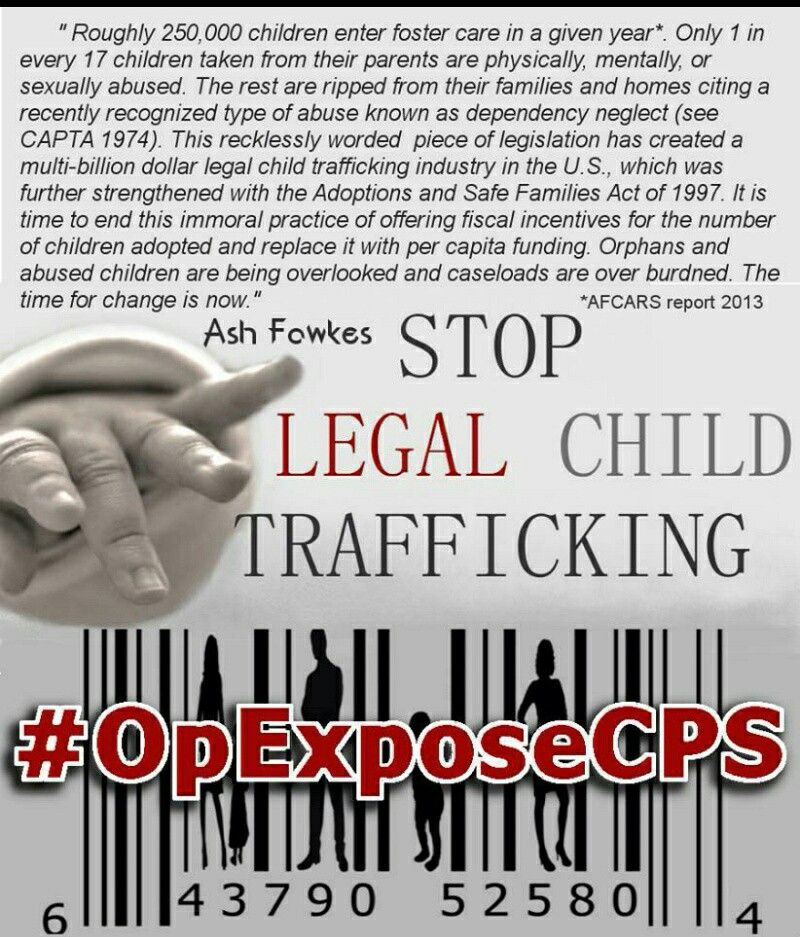
Physical Custody This is by far the most popular type of custody, and what people normally think about when you say “custody battle”. It means that your child lives with you more than they live with the other parent.
Legal Custody This is when the parents share equal right to make decisions about the child’s life. This can vary from being a hands-on type of situation where both parents are required to be consulted or it can simply mean that you have joint legal custody without sharing physical custody.
Myth #6: The custodial parent has more rights than the non-custodial parent.
This is very far from being true, as the non-custodial parent will still have all of their rights. It may seem like a lot is taken away when you are no longer living with your child on a daily basis, but it really isn’t compared to what could happen if you lose custody altogether.
Myth #7: If the non-custodial parent doesn’t pay child support, the custodial parent loses their custody rights.
This isn’t true, as it is entirely up to the court to decide how much the non-custodial parent must pay in order for them to have equal custody rights (or any at all). If they pay the required support amount, they will maintain their rights. (but if you’re late with a payment, it may cause some problems later)
Myth #8: Custody money can’t be taken from Social Security or other funds.
This is very far from true, as it’s simply a “garnish”. If you get a hold of your child’s or ex-spouse’s Social Security check, then the courts will simply place a garnishment against it; removing an amount from each check until what is owed (including interest) has been paid off.
Myth #9: You always have to wait 50/50 for custody.
Although this is what many people believe or want, it’s not actually how things work. If you have a lot of money (or potential to make lots), then you can use that against the other parent in order to get full custody up-front instead of having to wait.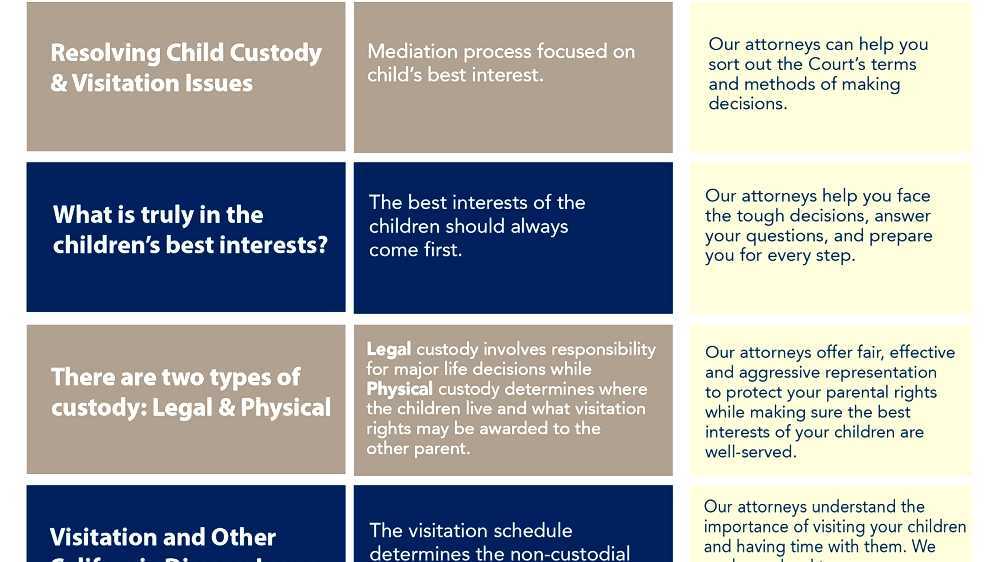 This is generally a good thing as long as you can financially support both yourself and the child.
This is generally a good thing as long as you can financially support both yourself and the child.
Myth #10: You have to go to court for custody rights.
This is mostly a myth in itself, as if you have 50/50 legal custody then you’ll need to go to court for any major changes. If there are no legal changes, then it’s only a matter of filing a change with Child Support Enforcement and you’re done!
Myth #11: You must have an attorney to get custody.
This is true if you want full custody or if you are contesting the other parent. Most states require a minimum amount of contact with your child for them to be considered a “custodial” parent. However, if you have 50/50 legal custody then a lawyer is optional.
Myth #12: The child has to decide which parent they want to live with.
While this sounds like it would be feasible; it isn’t and probably never will be possible no matter what the laws are. While you may have a large influence on who they want to live with, the courts have no say in this matter as it’s up to the parent(s) themselves. Another factor that is almost completely out of your hands is geography; most kids will choose to live closer to friends and/or school.
Another factor that is almost completely out of your hands is geography; most kids will choose to live closer to friends and/or school.
Myth #13: You can’t fight for custody if you have a record.
This is untrue, as you can still get custody of your child so long as it’s not done out of spite; or for the sole purpose of alienating them from the other parent. If you are able to prove that there was a barrier in place (such as domestic violence) then you will have significantly more legal options available to you now.
Myth #14: If the child is over 18 when custody proceedings begin, they have no say in which parent they are with.
This one is true, as the courts will not decide this matter for them; but it’s a good thing! They may be 19 years old or older when this happens, but they STILL didn’t want the situation that they’re in. They (if they feel strongly about it) will continue to live with whichever parent until either their real preference wins out or they reach legal adulthood.
Myth #15: If you don’t have an alimony agreement, then there is no way to get support.
If you don’t have a prenuptial agreement then this may be true; but if you do then the court will use it in determining how much child support to give to each parent. If you’re only asking for child support (and not alimony), then there are still numerous ways to get what you want without having the courts make this determination.
Myth #16: The courts will decide what’s best for the child.
While the court may want to do what is “best” for your child; it’s often not their decision. If you have 50/50 legal custody, then obviously you’re involved in deciding what’s best for them (along with the other parent). If you have your child full-time then obviously you’re making all of the decisions for them.
Myth #17: The court always favors and sides with the woman.
It’s not always the case, but it seems to be more of a trend in family court than anywhere else.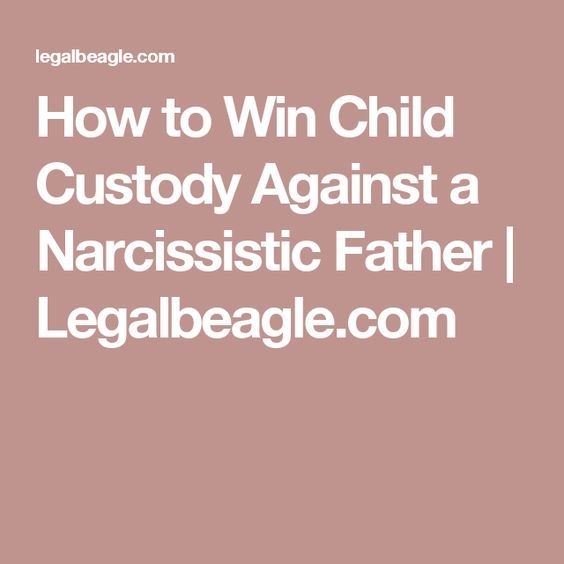 The reason for this is that it was more likely for a man to abandon his family back in the 1970s and 80s; as women have been shown by numerous sources to be much better parents than men.
The reason for this is that it was more likely for a man to abandon his family back in the 1970s and 80s; as women have been shown by numerous sources to be much better parents than men.
But, with that said the court does not try and take sides based on gender when it comes to child custody. The standard rule is that the woman get’s default physical custody until paternity is done. Then it’s 50/50 and physical placement.
If you are unwed at the time of birth and not the one giving birth. You have no rights to the child until paternity is proven.
Overview: It’s all about perception. From the minute you enter the court room, during mediation, and in front of the guardian ad litem which will aid you in having a more favorable outcome in your child custody battle. The way you handle yourself, your manner, and more importantly showing that your kids mean the world to you, which they should is the only way to win a custody battle.
If you are facing a child custody issue or child custody battle and need a competent and affordable child custody lawyer in Jacksonville, call Attorney Adam Sacks for a free consultation at (904) 396-5557 or contact us.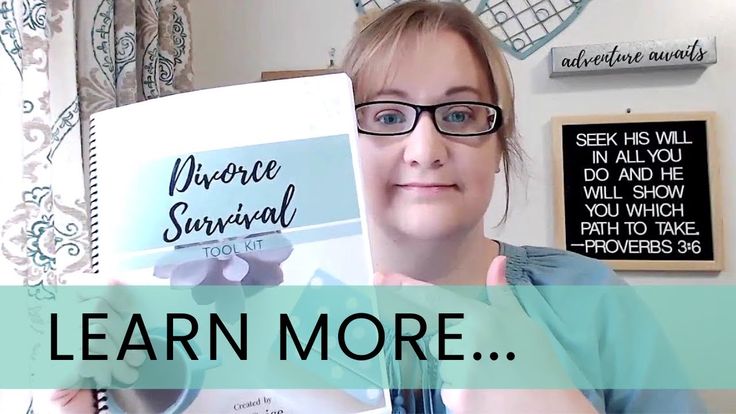
Controversial relationship: how to get the right to a child | Articles
In Magnitogorsk, a young man with difficulty was able to get custody of his younger sister after the death of his mother - the right to a child was unexpectedly declared by a previously convicted father, who had never been interested in their life. The story is not over yet - as in many other similar cases, the family will face long legal battles. "Izvestia" figured out what awaits minors, for the guardianship of which several parties claim at once.
How children are divided in court
22-year-old Yaroslav Ionush, a member of the Ministry of Emergency Situations, has recently become a temporary guardian for his eight-year-old sister - their mother died two years ago. However, this had to be achieved through the courts.
Yaroslav said that their mother died at the age of 38, when his sister was six years old. He took responsibility for the child, since even during the life of his mother he replaced the father of the girl - the man who was his stepfather left the family in 2014 and later did not take any part in her life. He also did not come to the funeral, he did not express a desire to pick up his daughter. However, Yaroslav was denied guardianship of his sister, since his father is alive and he must first be limited in his rights.
He also did not come to the funeral, he did not express a desire to pick up his daughter. However, Yaroslav was denied guardianship of his sister, since his father is alive and he must first be limited in his rights.
contentious relationship
Photo: depositphotos/Kostia777
The courts turned out to be a difficult test - the girl's previously convicted father filed a lawsuit to transfer the child to him for upbringing, and guardianship, citing some kind of psychological examination, stated that the girl wants to live with him . Yaroslav suggested that her father decided to take custody of her daughter for financial reasons.
When the man tried to establish contact with the girl, he failed - she refused to go out with him, was not happy with his gifts. New forensic examinations confirmed that the girl had no connection with her biological father.
As a result, he was limited in parental rights, and in September Yaroslav received temporary custody of the girl - so far only for six months.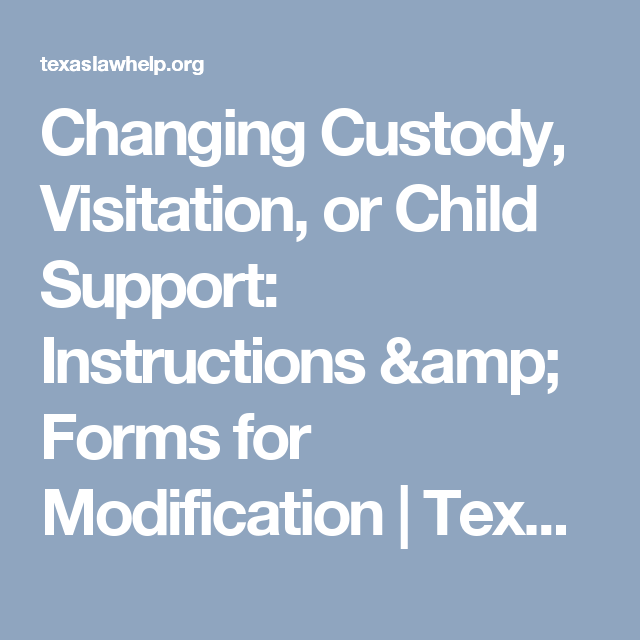 After this period, legal proceedings may begin again.
After this period, legal proceedings may begin again.
In Moscow, a court recently took place in another similar case - former cohabitants argued for the right to raise a child. This story began in the winter of 2021 - Adamkhan Shukurov took his 10-month-old daughter and kept her for more than a week. It was possible to rescue the girl with great difficulty, but this was followed by litigation. At the trial, Shukurov's side claimed that his former cohabitant Oksana Smetankina was a bad mother, but could not confirm this. As a result, the court took the side of Smetankina, establishing her right to a child.
contentious relationship
Photo: ITAR-TASS/Stanislav Krasilnikov
Both cases ended successfully, but the child experiences great stress in such situations. For example, a few years ago, near St. Petersburg, a seven-year-old girl was taken away from her grandmother and handed over to her father, who was convicted three times and was serving a sentence at that time. It was possible to cancel the decision of the administration only through the court with the participation of the Commissioner for Human Rights in the Leningrad Region. And in Tyumen, at the beginning of the year, a whole epic unfolded, when the child was taken away from the relatives of the deceased spouse by force in order to give it to the father by a court decision.
It was possible to cancel the decision of the administration only through the court with the participation of the Commissioner for Human Rights in the Leningrad Region. And in Tyumen, at the beginning of the year, a whole epic unfolded, when the child was taken away from the relatives of the deceased spouse by force in order to give it to the father by a court decision.
What are the interests of the child
Lawyer Viktoria Dergunova notes that all disputes about children, regardless of who they are between, should always be resolved in the interests of the child. At the same time, the Family Code does not disclose this concept, so it must be interpreted in accordance with the Convention on the Rights of the Child and the practice of the European Court of Human Rights.
- In the jurisprudence of the ECtHR, the “best interests of the child” are primarily considered the following two: maintaining ties with the family, unless it is established that these ties are undesirable, and the possibility of developing in a healthy environment , Dergunova told Izvestia. - The court should not be engaged in predicting how a child's life will turn out in a family about which he has no memory, with whose members he has no emotional connection.
- The court should not be engaged in predicting how a child's life will turn out in a family about which he has no memory, with whose members he has no emotional connection.
She notes that the interests of the child should be understood as a frame of reference within which the situation in which the child is located should be considered.
— The ECHR has repeatedly emphasized the inflexibility of Russian legislation in terms of regulating the issues of a child's communication with significant people who are not included in the circle of his close relatives within the meaning of Art. 55 Family Code ,” Dergunova said. — Inflexibility is expressed in the fact that Russian legislation contains an exhaustive list of persons entitled to contact with a child. The legislation does not provide for any exceptions, nor does it take into account the variety of family circumstances that may be taken into account in order to ensure the best interests of the child.
contentious relationship
Photo: depositphotos/dimaberkut
As a result, she notes, In practice, situations often arise when a person who is not a relative of the child, but who is deeply attached to him and cared for him, under no circumstances has the right to communicate with him .
Attorney Anton Zharov notes that the current legislation on guardianship and guardianship contains an indication of the priority of appointing guardians or trustees only for grandparents, adult brothers and sisters of a minor ward, and great aunts and grandfathers, cousins and sisters are not covered by this rule. articles.
He notes that in Russia the family is elevated to the rank of something sacred - if a person is biologically related to a child, then he acquires significant rights, which leaves an imprint on judicial practice.
- As a result, the priority of the child's interests over the priority of parents suffers , - he explained to Izvestia. - Although, in principle, we have stipulated that the court should decide on the place of residence of the child in a disputable situation based on his interests. And a lot depends on the judge. The Supreme Court has repeatedly said that it is necessary to avoid a formal approach in such cases, that it is necessary to examine not only the materials of the case, but also communicate with people, and require guardianship to carefully examine relationships in the family. Another thing is that with the existing workload and qualifications, do judges always do this? Probably not always.
- Although, in principle, we have stipulated that the court should decide on the place of residence of the child in a disputable situation based on his interests. And a lot depends on the judge. The Supreme Court has repeatedly said that it is necessary to avoid a formal approach in such cases, that it is necessary to examine not only the materials of the case, but also communicate with people, and require guardianship to carefully examine relationships in the family. Another thing is that with the existing workload and qualifications, do judges always do this? Probably not always.
Another question is guardianship behavior, Zharov notes. In his opinion, the principle of its work can be described as "no matter what happens."
“Guardianship agencies often take the least resistance approach so that, God forbid, there is no scandal,” he says. - The interests of the child in this case often play a secondary role, because each state body seeks first to save itself, and then, if possible, to save the children. And after all, no one will condemn the guardianship authority for giving the child to the father - it is much easier to pretend that we do not see any other circumstances, that here is the father, he is the father.
And after all, no one will condemn the guardianship authority for giving the child to the father - it is much easier to pretend that we do not see any other circumstances, that here is the father, he is the father.
contentious relationship
Photo: Izvestiya/Alexander Kazakov
What guides the court when choosing a guardian
O.E. Kutafina, co-founder of the ANO for the legal support of women and children "Mom in the right" Elena Grin notes: according to Art. 63 of the Family Code, parents have the priority right to raise their children over all other persons and have the right to demand the return of the child from any person.
“But the court has the right not to transfer the child if it considers that such a transfer does not meet its interests ,” she told Izvestia. - For each specific case, everything is investigated - how this parent took care of the child during the life of the other parent, the conditions created for the child, whether he remembers him, from the age of 10, the opinion of the minor himself is also taken into account.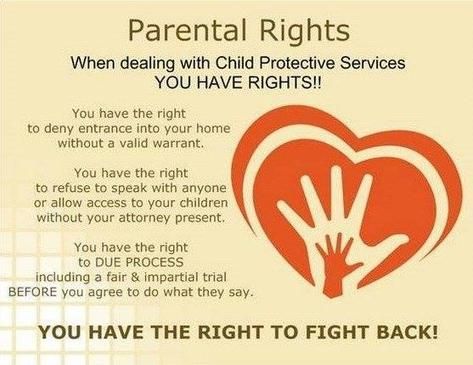
Lawyer, specialist in family law Larisa Vetter also notes that the only legal representatives of the child are the parents.
- That is, , according to the meaning and norm of the law, it is first necessary to restrict the rights or deprive the rights of a parent if there are good reasons , - she told Izvestia. - And only then the person who takes care of the child can be considered as a potential guardian. Restriction and deprivation of rights are the most difficult cases. It is necessary to prove that the parent harms the child by his actions.
Grin notes that in such cases a forensic psychological examination of parent-child relations is carried out, which is otherwise called “psychological and pedagogical examination”. In the course of it, the personality of the child, father, mother and other relatives who plan to live or live with him, as well as the psychological characteristics of their relationship, are examined.
“The courts are very sensitive to the preferences of a child over 10 years old ,” Grin said. — In younger children, the preference question is rarely asked because the child's opinion largely depends on the opinions of the adults around him, and also because such a question can exacerbate the child's internal conflict and affect the results of the entire study.
— In younger children, the preference question is rarely asked because the child's opinion largely depends on the opinions of the adults around him, and also because such a question can exacerbate the child's internal conflict and affect the results of the entire study.
contentious relationship
Photo: RIA Novosti / Vladimir Song
If a question about preferences is asked and the child responds with a clear desire to live with one of the parents, then the expert must determine whether this desire is a free desire of the child or a repetition of other people's words and the result of psychological influence, Grin explains. According to her, at a younger age, when answering this question, the child more often chooses the parent in front of whom he experiences more fear. The hostile moods of the child in relation to one of the parents, the expert must also clearly understand and determine their nature - it happens that negative feelings are fueled by another parent and do not basically contain serious problems in the relationship between the parent and the child.
How parents deceive the court
“Guardianship is often regarded by negligent relatives as a tool for obtaining benefits and other types of state support ,” Alexey Gavrishev, managing partner at AVG Legal, told Izvestia. “However, thanks to the work of guardianship authorities, as well as the provisions of the law, in most cases such intentions are easily detected and mercantilely motivated relatives do not receive guardianship.
Victoria Dergunova also notes that it will be difficult for an unscrupulous parent to deceive guardianship and court - his sincere desire to take the child will not be enough here.
— It will be necessary to provide evidence that confirms the intention and desire of unscrupulous parents to take the child into the family: communication with him, transferring funds for his maintenance, interest in his fate, she says.
Larisa Vetter notes that, nevertheless, a parent who acts for any mercenary reasons can obtain custody of a child.
— There are no exact mechanisms and tools, everything rests on the inner conviction of the court, the impression that the situation makes, she emphasizes. - That is why it is important to have evidence that can refute the words.
Elena Grin notes that in this situation, an expert in the field of psychology must establish the motives of the parent, the characteristics of his personal relationship with the child, the characteristics of all family members.
contentious relationship
Photo: RIA Novosti / Vladimir Pesnya
How to get custody of a child
A potential guardian must collect a whole package of documents, including references from the place of work and from the place of residence, proof of income, a police certificate of no criminal record, a medical report on the state of health, an act of examination of living conditions.
But in order to prove to the court that the child should live with you, especially with a living parent, you need to have strong arguments.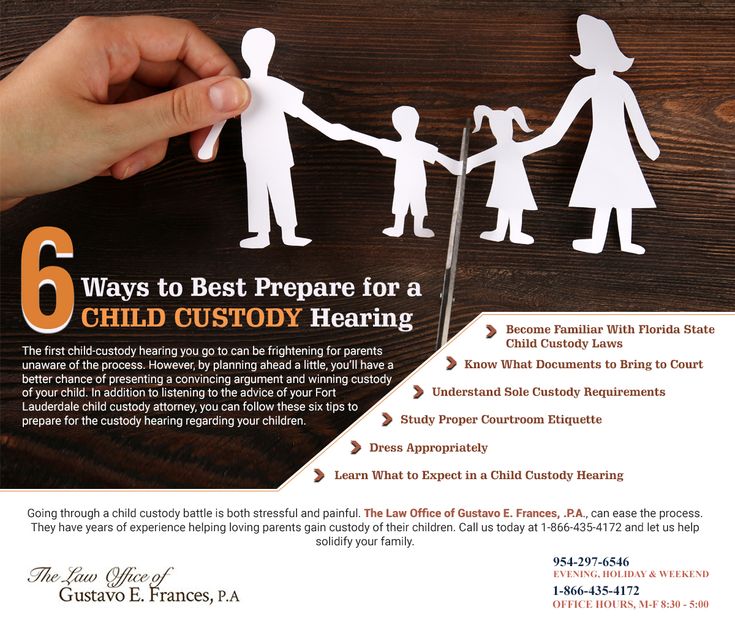
“You need to record your participation in the life of the child and at the same time the non-participation of the biological parent in it,” says Larisa Vetter. - School, clinic, institutions of additional education - everyone should be aware of the situation. Then, if necessary, they will be able to confirm the real state of affairs. In addition, you need to turn to a negligent parent for the maintenance of the child, oblige him to participate in life, receive education, and so on.
Victoria Dergunova also notes that it is necessary to collect certificates from the special developmental classes that the child attends, present evidence of the work of a psychologist and a conclusion about his psycho-emotional state.
— In these disputes, the main thing is to convey information to the court about what really is the “best interests of the child”, in connection with which the process of collecting evidence is difficult, — she notes.
How can a father get custody of a child in a divorce?
Igor, hello!
Art.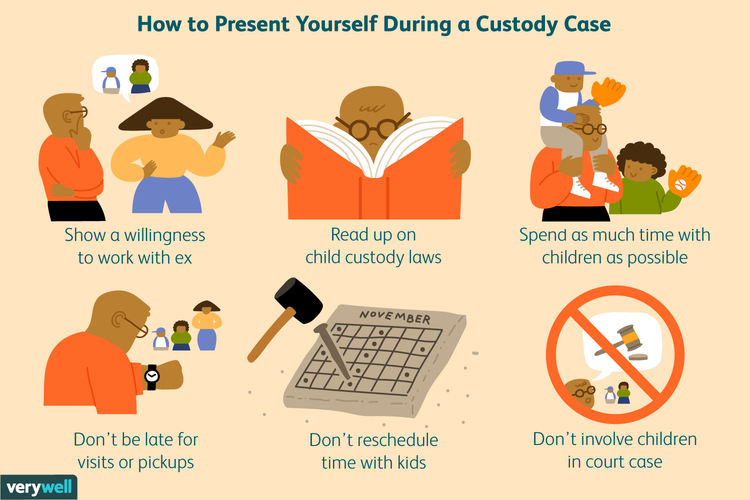 54 of the Family Code of the Russian Federation, every child has the right to live and be brought up in a family, the right to live together with their parents.
54 of the Family Code of the Russian Federation, every child has the right to live and be brought up in a family, the right to live together with their parents.
However, in cases where it is no longer possible for the parents to live together and there is talk of dissolution of the marriage, it is necessary to determine with which parent the child will remain.
In accordance with the rules of art. 24 of the RF IC, the court, when considering a divorce case, is obliged to determine with which of the parents the minor children will live after the divorce, as well as from which of the parents and in what amounts alimony for their children will be collected.
If an agreement is not reached between the parents on the issue of the place of residence of the child, then this dispute will be considered by the court, taking into account many circumstances. The main criterion for determining the place of residence of a child with one of the parents in a judicial proceeding will be the interests of the child himself. On this occasion, the Supreme Court of the Russian Federation in the Resolution of the Presidium of 10/27/1998, No. 10 determined that the court takes into account the age of the child, his attachment to each of the parents, brothers, sisters and other family members, the moral and other personal qualities of the parents, the relationship that exists between each of the parents and the child, the possibility of creating a child conditions for upbringing and development (taking into account the type of activity and mode of work of the parents, their financial and marital status, bearing in mind that in itself the advantage in the financial situation of one of the parents is not an unconditional basis for satisfying the requirements of this parent), and as well as other circumstances characterizing the situation that has developed in the place of residence of each of the parents.
On this occasion, the Supreme Court of the Russian Federation in the Resolution of the Presidium of 10/27/1998, No. 10 determined that the court takes into account the age of the child, his attachment to each of the parents, brothers, sisters and other family members, the moral and other personal qualities of the parents, the relationship that exists between each of the parents and the child, the possibility of creating a child conditions for upbringing and development (taking into account the type of activity and mode of work of the parents, their financial and marital status, bearing in mind that in itself the advantage in the financial situation of one of the parents is not an unconditional basis for satisfying the requirements of this parent), and as well as other circumstances characterizing the situation that has developed in the place of residence of each of the parents.
Art. 57 of the Family Code of the Russian Federation, the child has the right to express his opinion when resolving any issue in the family concerning his interests, as well as to be heard in the course of any judicial or administrative proceedings. Consideration of the opinion of a child who has reached the age of ten years is mandatory. That is, if a 10-year-old child expresses his desire to live with one of the parents, then the court will take into account this opinion, unless it violates the interests of the child himself (if the parent with whom he wants to stay does not abuse alcohol, does not immoral way of life and does not create a threat to the life and health of the child by its behavior).
Consideration of the opinion of a child who has reached the age of ten years is mandatory. That is, if a 10-year-old child expresses his desire to live with one of the parents, then the court will take into account this opinion, unless it violates the interests of the child himself (if the parent with whom he wants to stay does not abuse alcohol, does not immoral way of life and does not create a threat to the life and health of the child by its behavior).
Moreover, arguments about the financial situation and the presence of a permanent job of the spouse with whom the child will not live are not taken into account by the courts. Because the obligation to support children is assigned to parents by the provisions of Art. 80 of the RF IC, and the fact that the child will live with his mother, for example, does not relieve the financially better-off father of the obligation to maintain him.
Igor, if you have any questions, ask, I will be happy to answer. You can also write to me in the chat and order a personal consultation or preparation of a document on your issue.